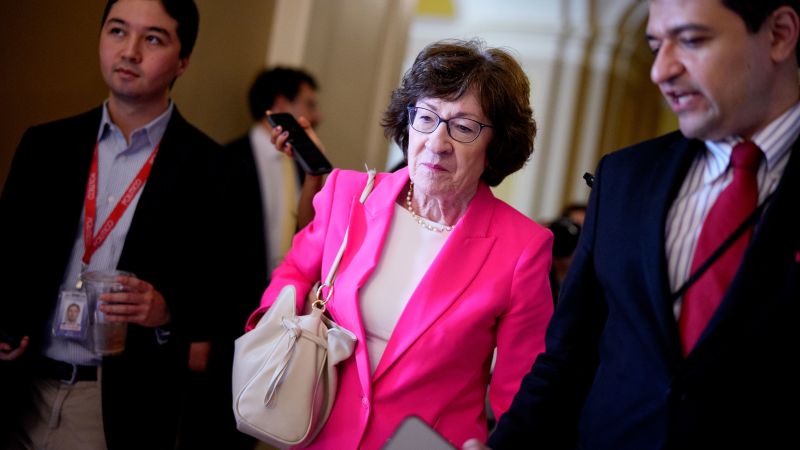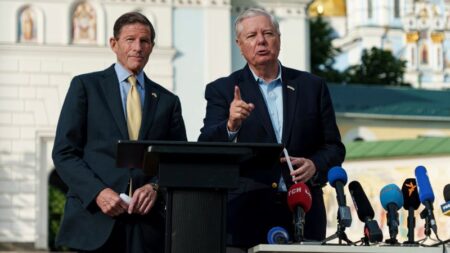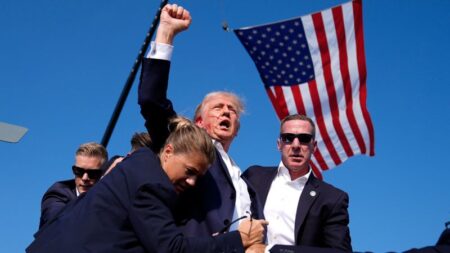Congressional Republicans are gearing up for a significant legislative battle over proposed spending cuts targeting foreign aid and public broadcasting. This contentious matter has escalated into a critical showdown, especially with President Donald Trump applying intense pressure on his party to secure these cuts. Failure to align with Trump’s agenda could result in potential backlash, jeopardizing political careers and future endorsements.
As the deadline of July 18 rapidly approaches, Trump is taking a firmer stance, warning Republicans that he may withdraw his endorsement for members wavering in their support for these budget cuts. This upcoming vote represents another potential victory for the White House and a setback for Democrats in Congress. It underscores the intricate power dynamics at play—a situation where Trump’s influence over the GOP remains strong, yet challenges arise from within the party itself.
Republican lawmakers in Congress face increasing obstacles, including dissent from within their ranks. One prominent chairwoman is engaged in earnest efforts to preserve certain funding programs while navigating an increasingly complex political landscape. Many fiscal conservatives within the GOP are still nursing grievances about prior tax cuts that have added trillions to the national deficit, resulting in heightened scrutiny and demands for more substantial budget reductions.
The White House’s proposal calls for rescinding approximately $9.4 billion allocated for foreign aid and public broadcasting programs. Trump’s broader strategy, categorized under the Department of Government Efficiency, aims to streamline government spending significantly. The passing of this package requires swift congressional approval before Friday, utilizing a rarely invoked presidential budget law that permits circumvention of the Senate filibuster. Yet, complications loom as the GOP attempts to navigate these legislative waters, having previously struggled with similar initiatives earlier this month.
Trump has made it abundantly clear that he will not accept any sign of Republican dissent regarding the vote, emphasizing his stand through a post on Truth Social. He declared that any affiliate who votes to sustain the funding for what he terms a “monstrosity” of public broadcasting would lose his support and endorsement, reinforcing the high stakes involved.
Noteworthy figures within the party, such as Senate Appropriations Chair Susan Collins, are working discreetly to modify the budget cuts proposed by the White House. Collins has expressed profound reservations regarding the potential rescission of $400 million earmarked for the PEPFAR program, a significant initiative established under President George W. Bush to combat AIDS. She categorized this proposed cut as dangerously short-sighted and potentially damaging to maternal and child health initiatives. As she heads into a pivotal reelection bid next November, she balances her responsibility to the party against her constituents’ needs.
Collins articulated her stance to the press, stating her willingness to accept some cuts but firmly opposing reductions impacting global health programs. While recognizing the necessity for efficient funding, she specifically criticized the notion of curtailing budgets for public broadcasting entities, particularly NPR, citing their perceived partisanship as problematic.
Additionally, lawmakers from rural states are voicing concerns about the negative implications these cuts might have on local broadcasting resources. Senator Mike Rounds of South Dakota, highlighting the dependence of many rural radio stations on federal funding, has expressed his unyielding stance against the proposed budget, asserting that local voices are essential for information access, particularly for marginalized communities.
Nonetheless, hardline conservatives within the GOP push back against any alterations to the White House’s prescription, viewing the current proposals as insufficient. They demand even steeper cuts and posit that any dilution of the proposed financial retractions would be untenable.
As the political tension mounts surrounding this matter, questions linger over whether or not the funding cuts will pass through a divided Congress. GOP leaders believe they can achieve the necessary votes, particularly if they can count on Trump’s vocal support. An endorsement from the president, they argue, may sway reluctant Republicans.
Trump’s team, under the direction of budget chief Russ Vought, is looking to repeat this tactic in subsequent legislative sessions to curtail government spending, obviating the need for a Democratic consensus. However, Democratic leaders are vocally opposing these maneuvers, arguing they jeopardize any potential for bipartisan negotiation as the government funding deadline looms nearer.
Senate Minority Leader Chuck Schumer has warned that attempts to retract funds which were mutually agreed upon could lead to broader dysfunction in Congress, hinting at the possibility of a government shutdown if compromise isn’t reached. Observations made by Republican Senators reveal uncertainty about the proposed cuts’ viability, foreshadowing a contentious end to this legislative battle.
In a world of shifting political alliances and the looming specter of re-election campaigns, Republicans find themselves at a crossroads. As they navigate the complexities of their internal agenda balanced against Trump’s imperatives, the outcome will shape not only their immediate fiscal policy but also the broader landscape of party unity as they head toward future electoral contests.











